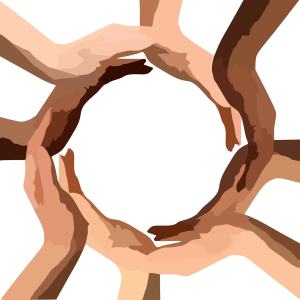The refugee crisis has been a pressing challenge for the European Union (EU), demanding a robust and thoughtful response. With an influx of people seeking refuge and a place to call home, the EU has faced the daunting task of managing the crisis while striving for integration efforts that promote harmony and solidarity.
Challenges and Conundrums: Navigating the Refugee Crisis
Humanitarian Aid vs. Security
Finding the right balance between extending humanitarian aid and ensuring security within EU borders has been a tightrope walk for policymakers. On one hand, compassion and empathy drive the call for providing assistance and safe haven to those in need. On the other hand, concerns about potential security threats necessitate stringent checks and controls. Straddling these contrasting concerns has been a daunting challenge, demanding innovative solutions.
- Implementing stringent yet efficient screening processes to identify genuine refugees while mitigating security risks.
- Establishing robust communication channels among EU member states to share intelligence and collaborate on security measures.
Overcoming Cultural Barriers
Integration efforts have encountered roadblocks due to cultural differences and barriers. The EU’s response to the refugee crisis must go beyond providing shelter; it requires embracing diversity and promoting social cohesion. Building bridges of understanding between the newcomers and the host communities is crucial to fostering unity.
- Promoting cultural exchange programs that facilitate mutual understanding and appreciation of diverse backgrounds.
- Establishing language training initiatives to help refugees communicate and connect with locals, enabling smoother integration.
Forging a Path Towards Integration: EU’s Endeavors
Education and Skill Development
One of the key aspects of integration lies in empowering refugees with the necessary education and skills to contribute positively to their new societies. The EU has recognized this and invested in programs aimed at equipping refugees with tools for self-reliance.
- Providing access to quality education and vocational training, catering to diverse talents and interests.
- Encouraging businesses to participate in mentorship programs that help refugees navigate career paths and explore opportunities.
Fostering Social Inclusivity
EU member states have been encouraged to implement inclusive policies that promote equal rights and opportunities for refugees. Emphasizing the importance of social inclusivity, the EU aims to create an environment where refugees feel valued and integrated.
- Advocating for inclusive housing policies that prevent segregation and foster social cohesion.
- Formulating policies that address discrimination and xenophobia, ensuring a welcoming atmosphere for all residents.
- Enhancing support for NGOs and community-based organizations that play a pivotal role in aiding refugees and facilitating integration efforts.
- Collaborating with private sectors to create employment opportunities and vocational programs for refugees, boosting economic independence.
- Fostering partnerships with countries outside the EU to share responsibilities and develop a unified response to the global refugee crisis.
- Empowering refugees to become active participants in their communities, contributing to decision-making processes and policy formulations.
Investing in Long-term Solutions
Addressing the refugee crisis requires a long-term perspective. Instead of relying solely on short-term fixes, the EU must invest in sustainable solutions that lay the foundation for a stable and prosperous future.
- Allocating resources towards integration programs that span over several years, ensuring continuous support for refugees.
- Collaborating with international organizations and experts to study successful integration models from around the world and adapt them to the EU’s context.
- Expanding language and cultural exchange programs to include not only refugees but also EU citizens, fostering mutual understanding and cooperation.
- Celebrating cultural events and traditions from various communities to promote a sense of belonging and unity.
- Encouraging media outlets to highlight positive stories of successful refugee integration, dispelling negative narratives and stereotypes.
Perseverance and Adaptability
Economic Integration
One of the significant challenges in the integration process is overcoming economic barriers. Refugees often face difficulties in accessing job opportunities, financial resources, and financial institutions. To promote economic integration, the EU must work to remove these barriers.
- Collaborating with financial institutions to develop tailored financial solutions for refugees, making it easier for them to access banking services.
- Providing incentives and support to businesses that hire refugees, recognizing the benefits of diversity in the workplace.
Nurturing Mental Health and Well-being
The journey of refugees towards integration is not only physical but also emotional and psychological. Many refugees have experienced trauma and hardships, making mental health support an essential aspect of integration efforts.
- Integrating mental health services into the healthcare systems of EU member states, ensuring accessibility for all residents.
- Raising awareness about mental health issues among refugees and creating safe spaces for them to share their experiences and seek support.
———— The EU’s response to the refugee crisis and integration efforts presents both challenges and opportunities. Striking a balance between humanitarian aid and security is essential, while fostering a culture of inclusivity and diversity holds the key to successful integration. By investing in education, skill development, and inclusive policies, the EU paves the way for a more harmonious and integrated future for all residents. Embracing the spirit of solidarity, the EU demonstrates its commitment to addressing the refugee crisis while building cohesive societies. As the journey continues, creative and innovative solutions will play a pivotal role in shaping a brighter future for everyone involved in the EU’s response to the refugee crisis and integration efforts.


